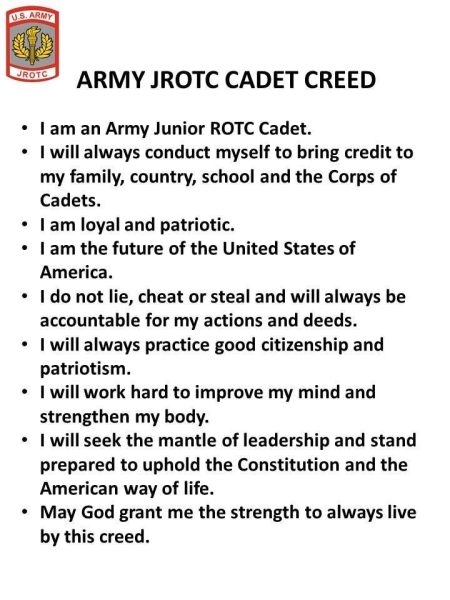
In JROTC, Cadets develop citizenship, character, leadership traits, and responsibility. You can go to your counselor and request the class. To stay in the program, you must abide by the rules, show commitment, listen, and do your job.
The program teaches you many things that you’ll carry into your adult life and even if you consider enlisting. Rosemary Hernandez, a 4th year Cadet, stated, “The most valuable thing I’ve learned being in the program is easily public speaking, I’ve become more confident all thanks to this program.” This skill is a necessity because you will have to speak in front of people a few times in your life whether it’s in high school, college, or in your career as an adult.
“The difference between normal classes and the JROTC class is that it shows you have other opportunities and teaches you what to do in the real world. It teaches you different paths you can take in the military or even if you’re interested in doing something else, they teach you how to go out about it”, said by 3rd year Cadet, Blanca Castellanos. In the class, there are rules which are: putting your phone in the back, your bag on the right side of your desk so when you do the daily routine you can get up with ease, and no eating. Additionally, the rules with the uniform are no PDA, keep your entire uniform on, have everything that goes on your uniform correct, and it must be neat. The obligation you have as a Cadet is to do everything you are told and be committed because it was a choice.
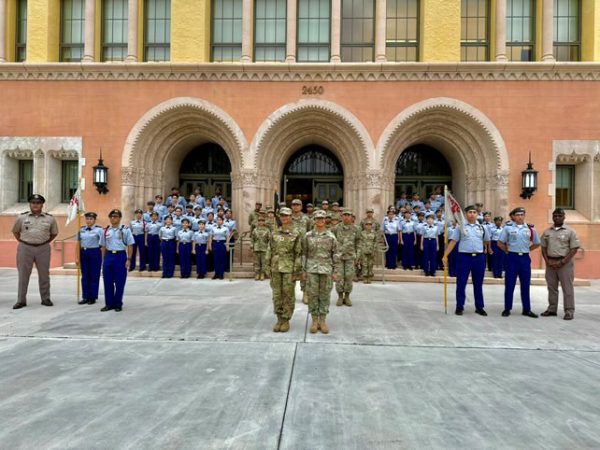
JROTC can build your confidence, leadership skills, and prepare you for a brighter future. According to the textbook titled Leadership Education and Training, “JROTC: Junior Reserve Officers’ Training Corps is a program that teaches students in high school the values of good citizenship while giving them an introduction to the U.S. Army. Besides learning military history and customs, doing community service, being in uniform, and partaking in fitness training, you learn basic values that you can use throughout life and that prepare you for college or any career you might consider.”
A lot of cadets who join/are in JROTC have become better citizens. They have learned responsibility, integrity, leadership, duty, respect and more. According to Carla Calix, a 2nd year Cadet, “I’ve learned teamwork, which is something we as students use a lot in school. That’s a good thing because I’m usually the first to volunteer to work alone.” These Cadets have learned useful skills that’ll aid them now and in the future. This program has helped many students change how they behave and act, made them better people, and opened new opportunities for them.
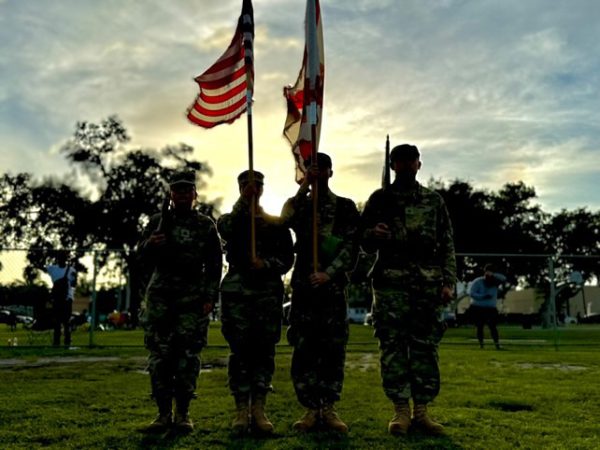
JROTC has a chain of command. The BC (Battalion Commander) oversees the entire battalion and insuring everybody is informed on what’s going on. The XO (Executive Officer) is primarily the BC’s right hand, and they make sure that everybody is doing their job and doing everything the way they are supposed to. The CSM (Command Sergeant Major) oversees color guard, drill, the company commanders, ushering pep rallies, being present at certain activities and checking everybody is present for their assigned job at these activities. Jemaly Enamorado, the XO, said, “I’ve learned responsibility being in such a leadership position. I learned how to be accountable when I’m not being responsible.” Not only do these traits assist you in high school but they help you even more when you transition to your adult life.
To level up and earn a rank/job in JROTC, you need to show leadership, commitment, take accountability, be responsible, know the basic knowledge in JROTC, be academically involved, and participate in activities. The jobs in the JROTC program are: S1 which is academics and personnel; S2 which is in charge of supply and making sure there’s the supplies the battalion needs and if there’s not, they inform the instructors so it’s replaced; S3 which is in charge of weekly training schedules, field trip forms, and making lists for field trip forms; S4 which supplies uniforms, making sure everybody has their uniform, and the closet is organized; and finally, S5 which is special projects and they handle the social media, take pictures/videos and just handles the way JROTC looks in the eye of the public. Each job has its assistant.
One after-school activity for Cadets is Raiders, which is physically demanding. In Raiders you have rope bridge, the 3-mile run, Raider challenge, liter carry, and Raider’s fitness test. These five events are very physically demanding because they’re back-to-back, so you don’t get a break-in-between. In Raiders, if you want to give up, you must think of what that might cost your team since you chose to join and be a part of a “family”.
Roxana Santos, a member of Raiders, states, “As hard and as challenging Raiders is, it’s truly worth it and rewarding being a part of a team and seeing how being in a team is impacting me.”
Another after-school activity is color guard. They present the colors, or flags, and this requires synchronization with precise timing, its marching being in sync with flags and rifles. There’s four people in color guard: the two people on both ends hold the rifles and the two people in the middle hold the U.S.A. flag along with the Florida state flag. The U.S.A. flag is on the right and the state flag is on the left.
The last activity is Drill, which is, the synchronization of marching together and following commands from the commander in charge of the squad or platoon. According to Keily Martinez, the CSM in JROTC, “Drill and color guard are very good activities to be a part of because it’ll teach you how to really concentrate on what you’re doing, how to listen to commands, and brings you together as a team to build a special connection.”
Being in JROTC, a scholarship that comes to mind that you would be eligible for is the FIU scholarship. This scholarship gets you into the ROTC program at FIU and helps you in the long-term with the military by ranking you up to an officer. Additionally, if you were to enlist in the military after high school, doing more than two years in JROTC gets you a higher pay and allows you to rank up faster than others because you have prior experience.

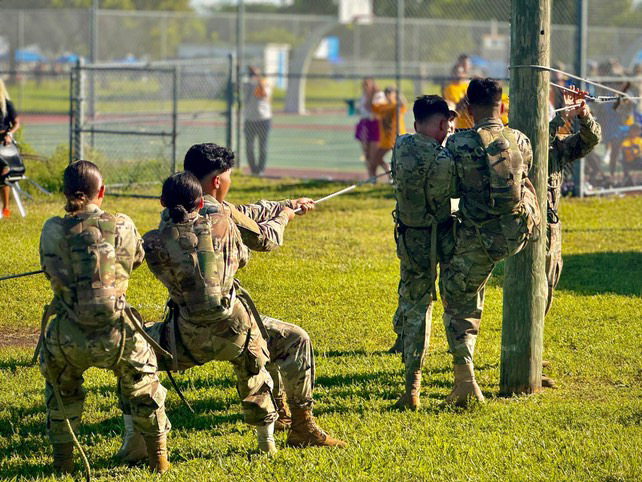


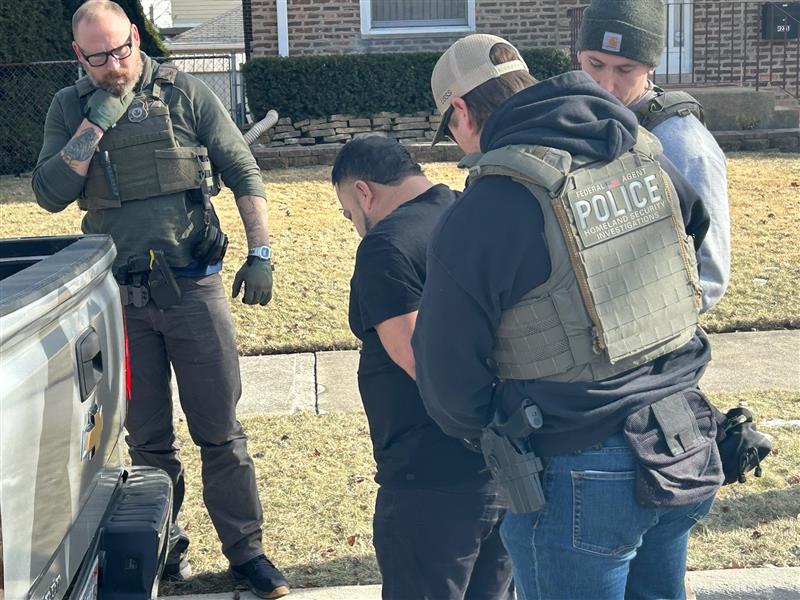

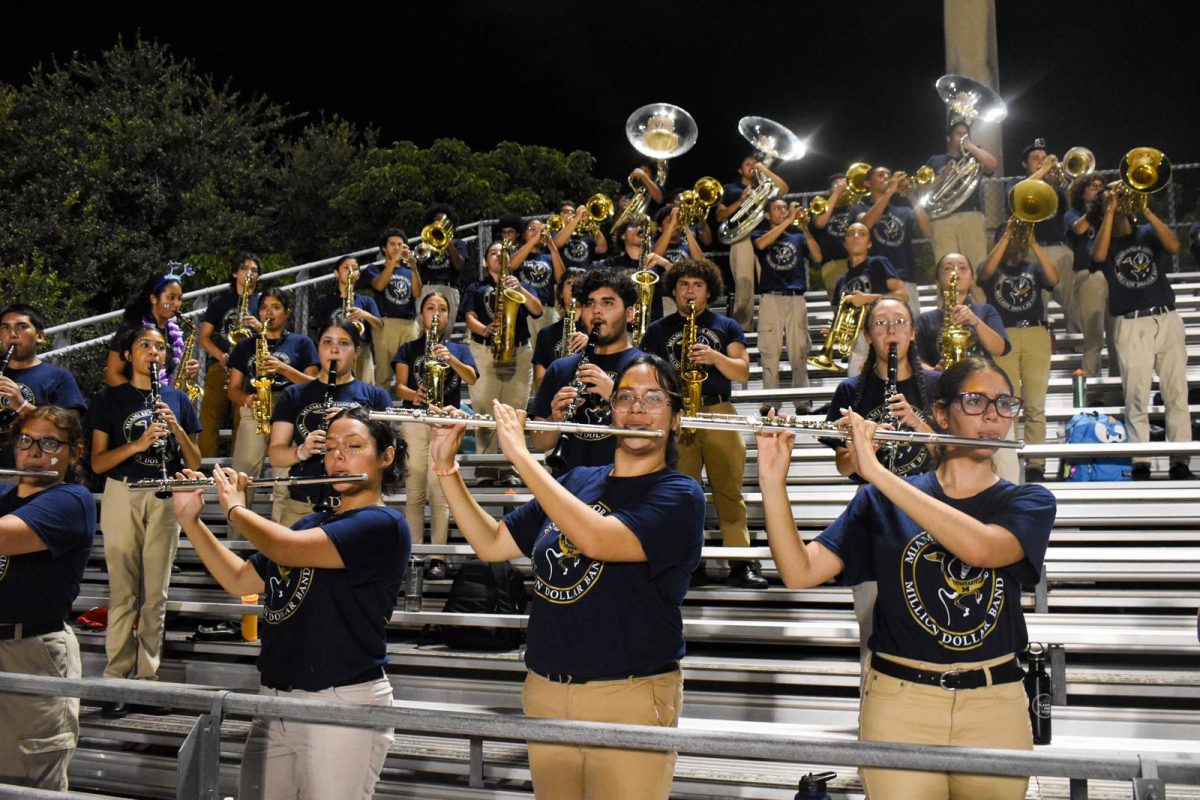



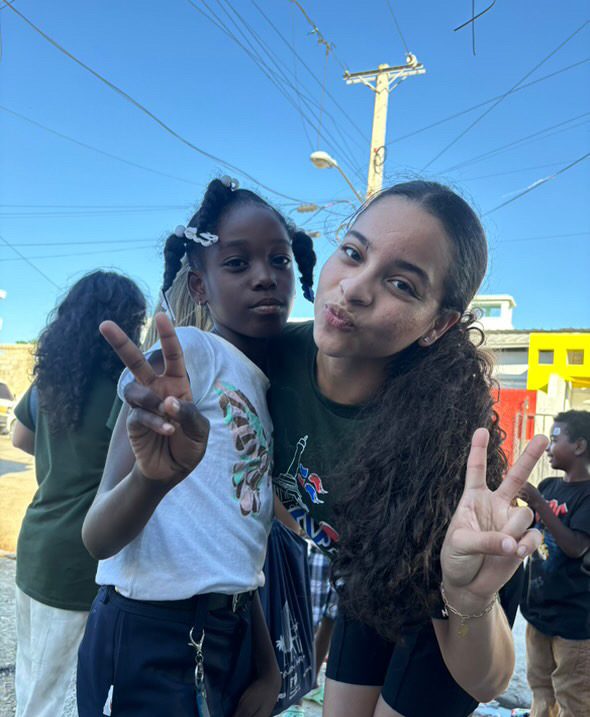
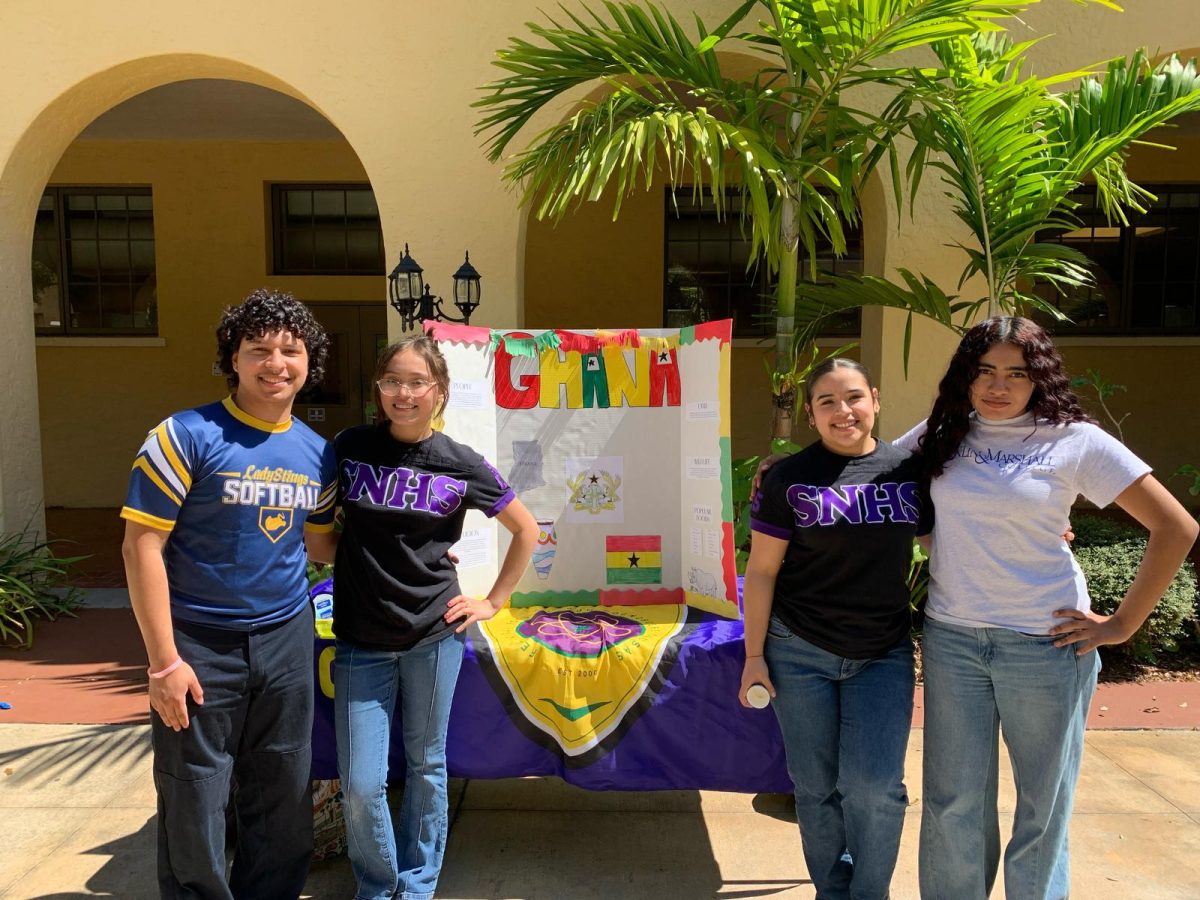
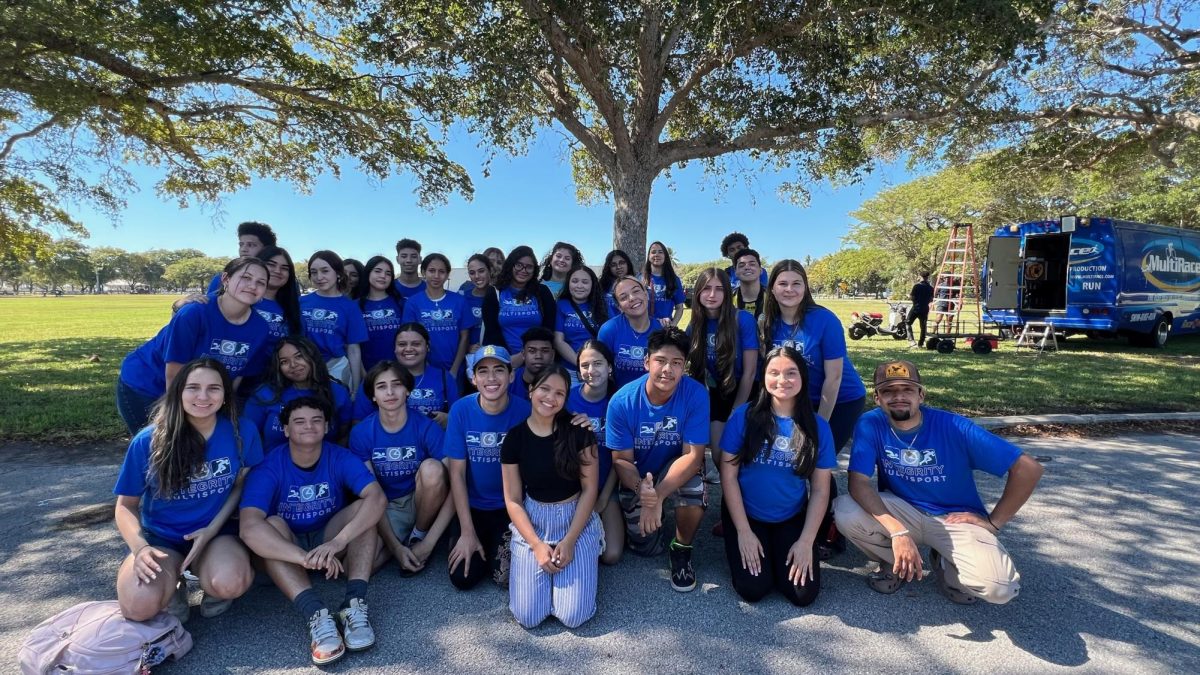
Jesus Oquendo • Jan 11, 2025 at 11:12 pm
I’m so proud of you Jeleanys Oquendo my beautiful daughter God bless you always.